What does it mean for a faith-based organization to make faith and spirituality an integral part of its board meetings and planning? That’s the subject of Setting the Agenda: Meditations for the Organization’s Soul, a new book from Herald Press by Edgar Stoesz and Rick Stiffney, who reflect on some of their key convictions that Margaret Benefiel refers to in her foreword as a “courageous and groundbreaking” venture into “the largely uncharted territory of spirituality and board leadership.”
What is the unique contribution of this book alongside other books you’ve written on various aspects of board work over the past 17 years—books such as Doing Good Better, Common Sense for Board Members and Doing Good Even Better?
Stoesz: Much of my work to this point has been about better governance—more effective meetings and governing techniques. The purpose of this book is to help strengthen the faith dimension of faith-based organizations, not only the inward and the outward look, but also the upward look. The book takes a holistic approach that does not use spirituality to escape the hard decisions that boards face, but rather to navigate through the complex issues that organizational and congregational leaders face.
You have expressed concern about the disconnect between health-related agencies and the faith communities that birthed them. In what way do you see this book addressing your concern?
Stiffney: If an institution does not tend to its roots in a community of faith, the core values may continue to be great human values, but they are devoid of a theological source. This book will remind governing boards of spirituality as a source of power in dealing with the types of challenges that all boards face.
What is your most inspiring and instructive example of spirituality as an integral component of board work?
Stoesz: At a recent all-day planning session, a board met first in a circle with a three-part candle in the middle, reflective of the triune God. The day was interspersed with silence and consciously seeking the Spirit’s guidance—and frequent reminders that “the work is thine, O Christ our Lord.”
Much as we need the conscious manifestation of the Spirit in our midst, equally important is what I call the “subterranean.” Even as we progress through a routine agenda, we should do it with an awareness of God’s presence and guidance.
Stiffney: As I observed a denominational board process, a complex issue, what impressed me was the way in which Christian faith helped to frame the dilemma and how various methods of board engagement—prayer, silence, intense give and take, personal sharing, space apart and time together—released spiritual power in the discernment. The board had also done its homework ahead of time by gathering critical input and anticipating responses to its decisions.
What pitfalls should boards avoid as they seek to ground their work spiritually and theologically?
Stiffney: Many faith-based nonprofits treat faith more as “frosting on the cake,” rather than as “leaven in the bread.” Faith and spirituality should influence the whole of board engagement and not be used simply as a perfunctory act to open and close a meeting.
Stoesz: The biggest pitfall is being too busy with the urgent to reserve quality time for the important. The other extreme is the pitfall of using spirituality as an excuse not to face practical realities. The book quotes the text: “Look not on the things that can be seen—they are transient.” However, boards need to look at things that can be seen—budgets, cash flow, changes in the marketplace—but not only at the things that can be seen. An appropriate motto for board work should be: “Not plan or pray, but plan and pray.”
If boards were to successfully integrate spirituality into their work, what difference should this make for the constituents, clients or residents of a faith-based organization?
Stoesz: Meaningful spirituality helps to get the ownership question right. Boards serve in a fiduciary capacity; they do not own the organization. . . . Boards deal with the unknown; their best and most urgently needed work is probing and anticipating the future. To do this they need to let go of the present and draw on the guidance of the Holy Spirit.
Stiffney: Naming and claiming the place of faith and spirituality in governance will enrich and deepen the experience of individual board members and senior staff. . . . Board members begin to view their work in relationship to the vocation of the organization. Their spirits and the soul of the organization are touched. The resulting decisions will be wiser, better seasoned or more deeply reasoned.


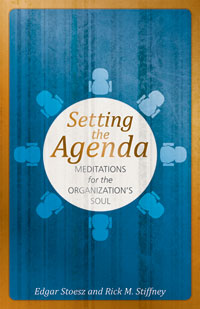

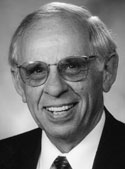
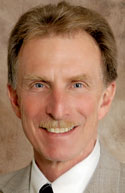
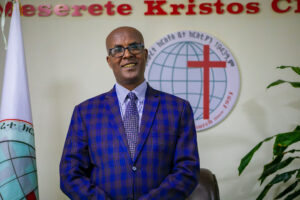

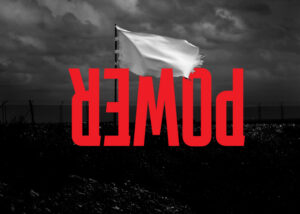

Leave a Reply
You must be logged in to post a comment.